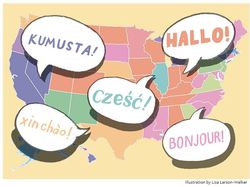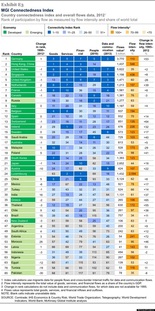|
If you've localized your website for your international markets, you've taken a good first step toward tapping your global customer base. But online competition is becoming fiercer and your marketing has to get even more sophisticated in order to compete effectively. As this Multichannel Merchant article reports, in countries outside of the U.S. there are (gasp) other popular search engines besides Google, and they use different algorithms to serve up top search results. For example, if you're marketing in China, you'll need to optimize for Baidu which has nearly 60% of the market.
Additionally, you need to pay close attention to your SEO terms. Hire a professional translator to ensure that you correctly translate your key words and ask them to think broadly about what words the local market uses. In the same MCM article, they cite a French example where a chocolate sweet roll is usually called a pain au chocolat, but in the southwest it's called chocolatine. You'll encounter the same issues in Latin America, where English words translate very differently depending on country and region. For example, green beans can be translated to habichuela, chauncha, vainita, or ejote depending on the region. If you happen to be peddling green beans, the SEO words you choose could have a huge impact on your search ranking. Think about the U.S. market. In some areas you would order a sub sandwich, but across the country we also have hoagies, grinders, heroes, and spuckies. If you use the wrong term for your market, you won't get nearly so many customers. If your product is trendy, you'll have to be even more aware of what terms local consumers use. Keep a close eye on social media for each market and adapt your strategy to the local terminology.
1 Comment
 Slate published a fascinating article with several different maps showing which languages are most prevalent in each state. It starts to get really interesting when Mr. Blatt filters out Spanish and English. So what are people speaking in your state?  Economies thrive on the global exchange of goods, services, people and information. The U.S. used to head the list of globally connected countries, but the latest data from McKinsey Global Institute and the McKinsey High Tech Practice shows that Germany now tops the chart followed by Hong Kong. The U.S. has sunk to 3rd place. And what about global powerhouse China? It is in 25th place, largely due to restrictions on the flow of people and information. Why does global connectedness matter? This research shows that the more connected a country is, the faster it's GDP grows.  A Harvard Business School study examined the present and future tense constructions of different languages and discovered people who speak languages whose tense constructs were similar prepare better for the future than those who speak languages that have different structures for present and future tenses. What does that mean? If you speak French, English, or Korean you're more likely to be obese, less likely to save for retirement, and less likely to take actions to stave off climate change. Swedes, Germans, and Chinese are more likely to take actions today that are socially responsible for the future. The good news? As a corporation becomes more global, the language effect decreases. One more reason to hire with diversity in mind. http://hbswk.hbs.edu/item/7479.html |
Author
Archives
March 2024
Categories
All
|
Photos from : : Ys [waiz] : :, bjahind, fabola, MattysFlicks, @sage_solar, LoS, Traducción e Interpretación, Kyle Taylor, Dream It. Do It., _gee_, keepitsurreal, One Way Stock, Airviewsphotos, GotCredit, efile989, Benoit cars, ** RCB **, stephiesal853, Francisco Anzola, Highways England, ITU Pictures, VIPevent, leoplus, Karsten Bitter, Jolante, jobstop11, Nguyen Vu Hung (vuhung), jurvetson, mikefats, YooSan, sandrafdzh, roland, mikecogh, y entonces, Donald Lee Pardue, Gatorgoon, daniel0685, BÜNDNIS 90/DIE GRÜNEN, rick, {Guerrilla Futures | Jason Tester}, mikecogh, markyharky, amslerPIX, jo.sau, IAEA Imagebank, lisa-skorpion, Toronto Public Library Special Collections, Wootang01


 RSS Feed
RSS Feed
